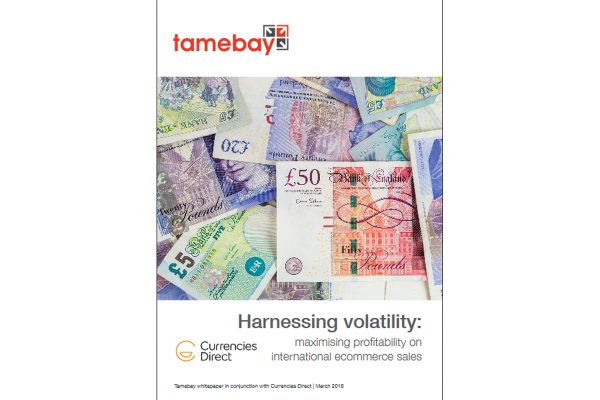Brian Harris is the Chief Product Officer at Currencies Direct and here he shares five tips on how SMEs can make the most of the Christmas period, boost their profits and protect themselves against unexpected expenses.
Though Christmas can be taxing for traders on the high street, those operating online and trading abroad face a swathe of challenges of their own. If you’re selling to an overseas market or you’re ordering stock from foreign suppliers, doing business overseas can be a minefield at any time – and particularly around Christmas.
Here are a few last-minute ideas on how to really make the most of Christmas, these simple tips can help you make the most of the shopping season.
1. Keep your flow of stock constant
When ordering from overseas suppliers, it’s even more important to keep track of your stock levels and to resupply when appropriate. Delivery costs can quickly escalate if you have to place numerous orders in a short space of time. Likewise, over-ordering and ending up with funds tied up in stock that sells slowly is bad for liquidity. Keep a close eye on what’s selling well and what isn’t, and be sure to stock up appropriately well in advance of the Christmas rush to ensure you’re not caught short.
2. Offer Discounts and deals
Black Friday and Boxing Day bookend the Christmas period, so having a strategy in place that makes the most of these prolific sales periods is essential. Think about offering lower prices on products commonly bought together. Bundling products together like this can create an opportunity whereby you are the only seller to offer the unique bundles of products and differentiate you from your competitors, but be sure to offer customers a choice of bundled and unbundled products – overusing bundles can actually harm sales. And if you’re selling abroad, be sure to take exchange rates into account when putting deals together – shift in currency values can skew the discounts you’re offering and eat into your profits.
3. Don’t lose out to volatile exchange rates
When you’re paying your overseas suppliers or taking payment from foreign customers, you’re at the mercy of exchange rates. Many SMEs place large orders ahead of Christmas, pay their invoice weeks or months later and ultimately lose money because the value of the pound has shifted over the same period. Rate changes can be small, but even a few pence in every pound can add up to thousands in the long run. It may feel beyond your control, but you can protect yourself against exchange rates fluctuating by using Forward Contracts to purchase currency. This means fixing an exchange rate for use at a future date – helping to safeguard your profits and keep financial forecasts accurate.
4. Minimise customer returns
After the Christmas rush, comes the notorious returns deluge, which can be particularly damaging if you have to foot the bill for expensive shipping to overseas customers. The average yearly rate of returns relative to products is around 10%, but over the festive season this spikes to 25% of all products purchased. While you can’t guarantee that someone has found the perfect gift for their loved one, you can help provide clarity about what they’re purchasing. Have clear and comprehensive descriptions of your products and, if possible, use detailed, zoomable or even 3D images of your products. 22% of returns to online businesses are due to a discrepancy between the real-life product and its online listing, so the clearer you can be, the better!
5. Streamline your foreign payments and don’t lose out
Manually processing foreign currency payments and transferring them into sterling is an arduous task for any busy small business owner. Even for larger organisations that use accountancy firms or in-house treasury departments, streamlining this process has a positive impact on efficiency and costs. There are a number of ways to tackle the problem, for example a multi-currency collection account can automatically convert foreign currency funds and transfer them to your domestic bank account so you have access to funds whenever you need them.









